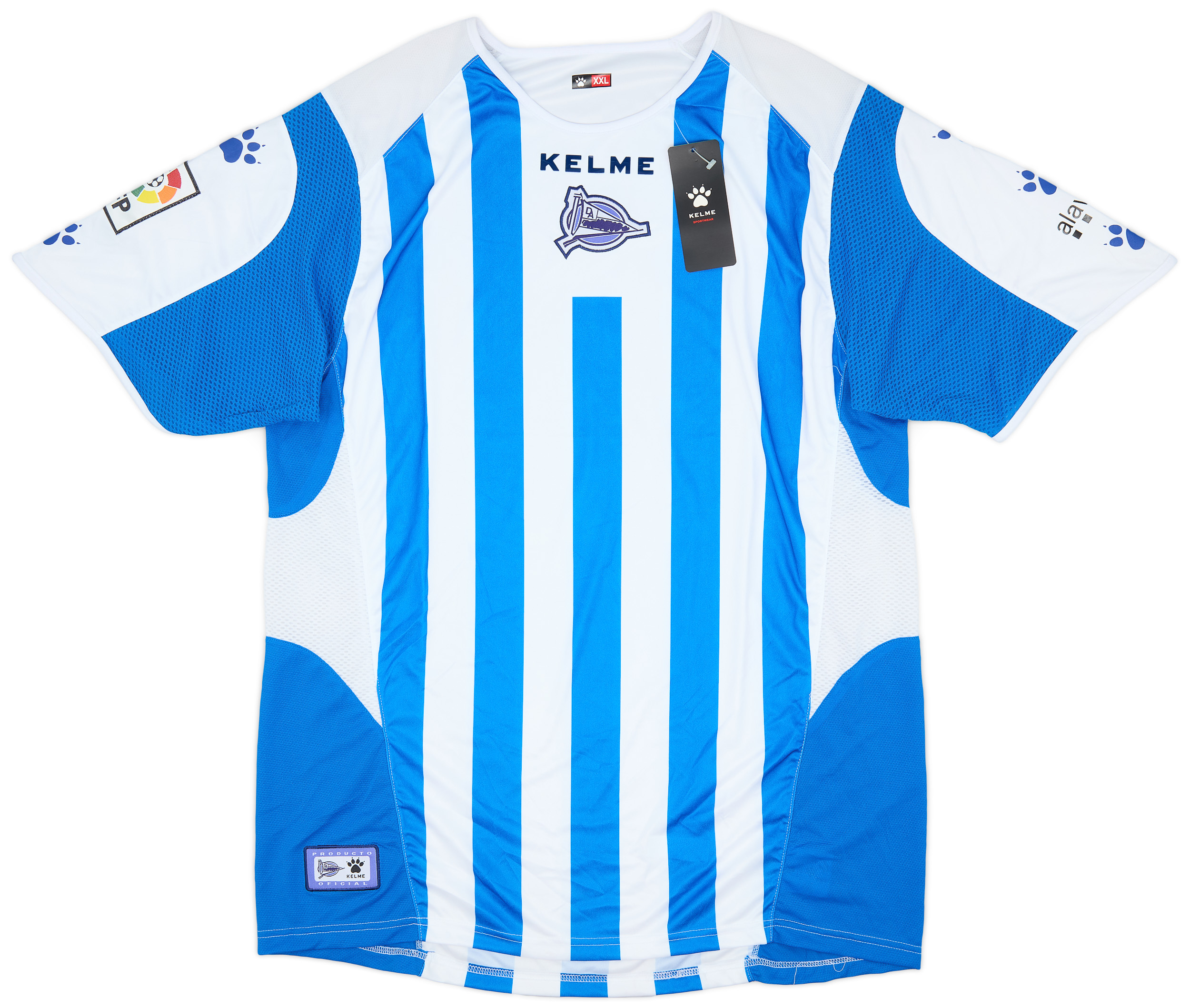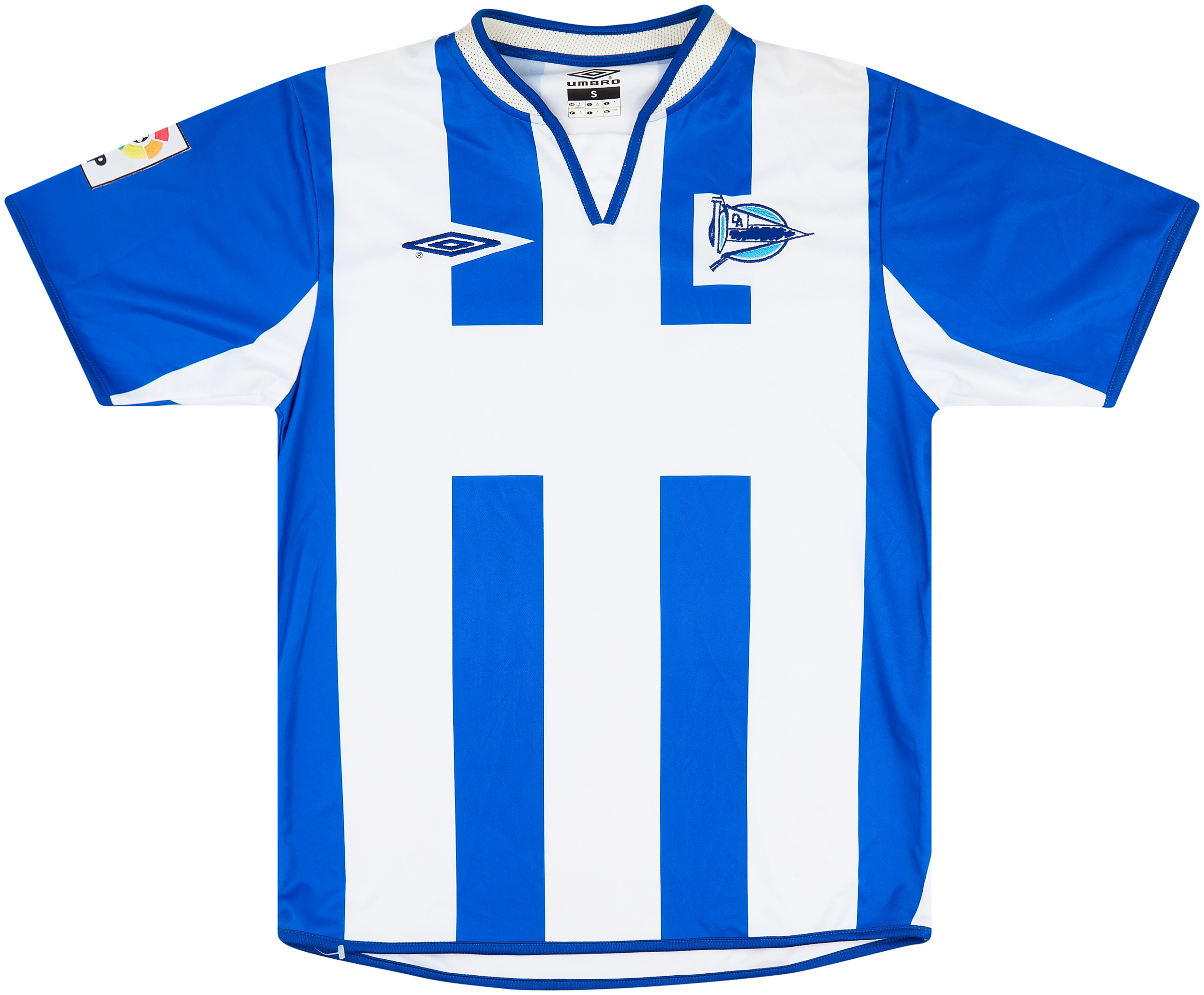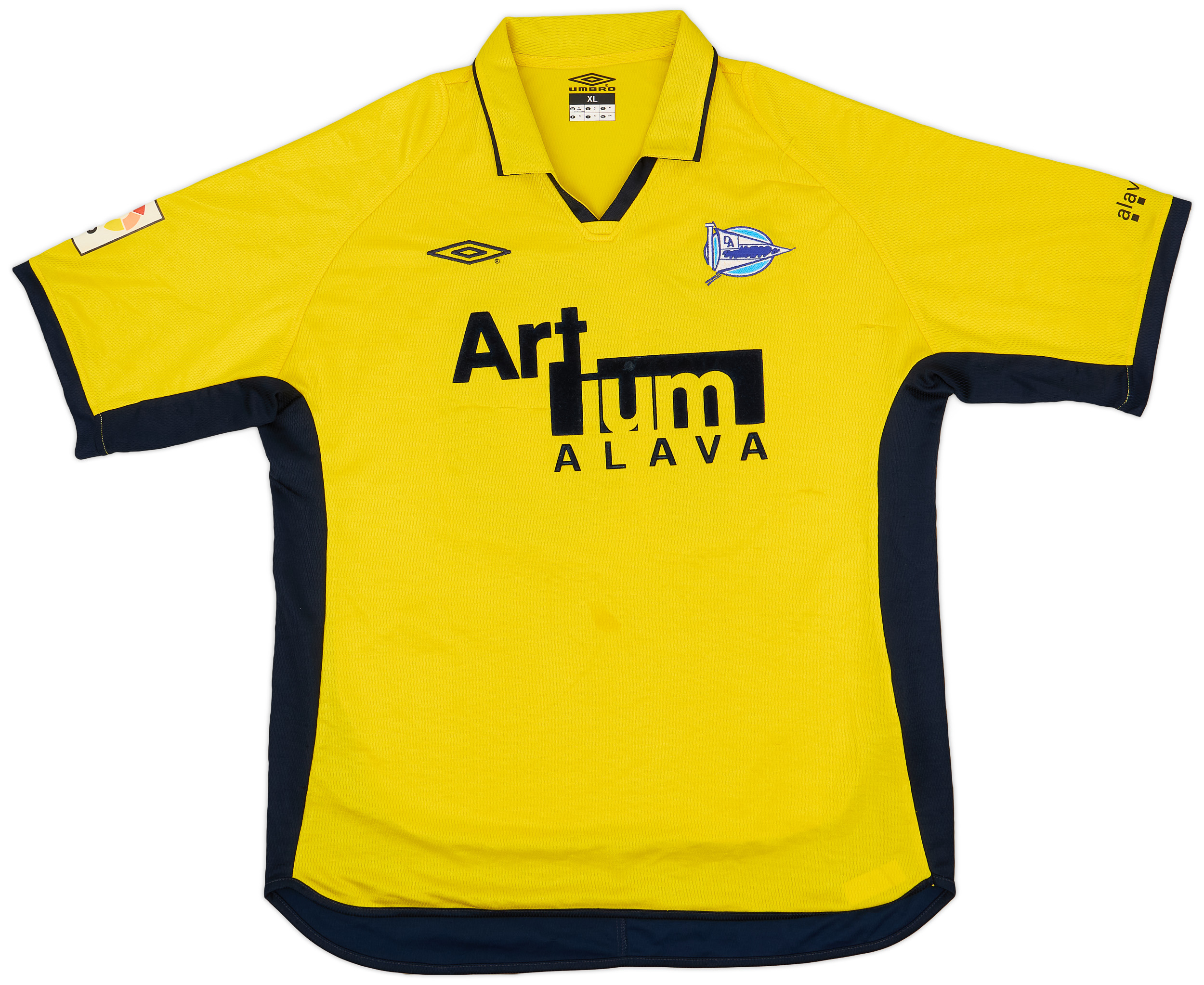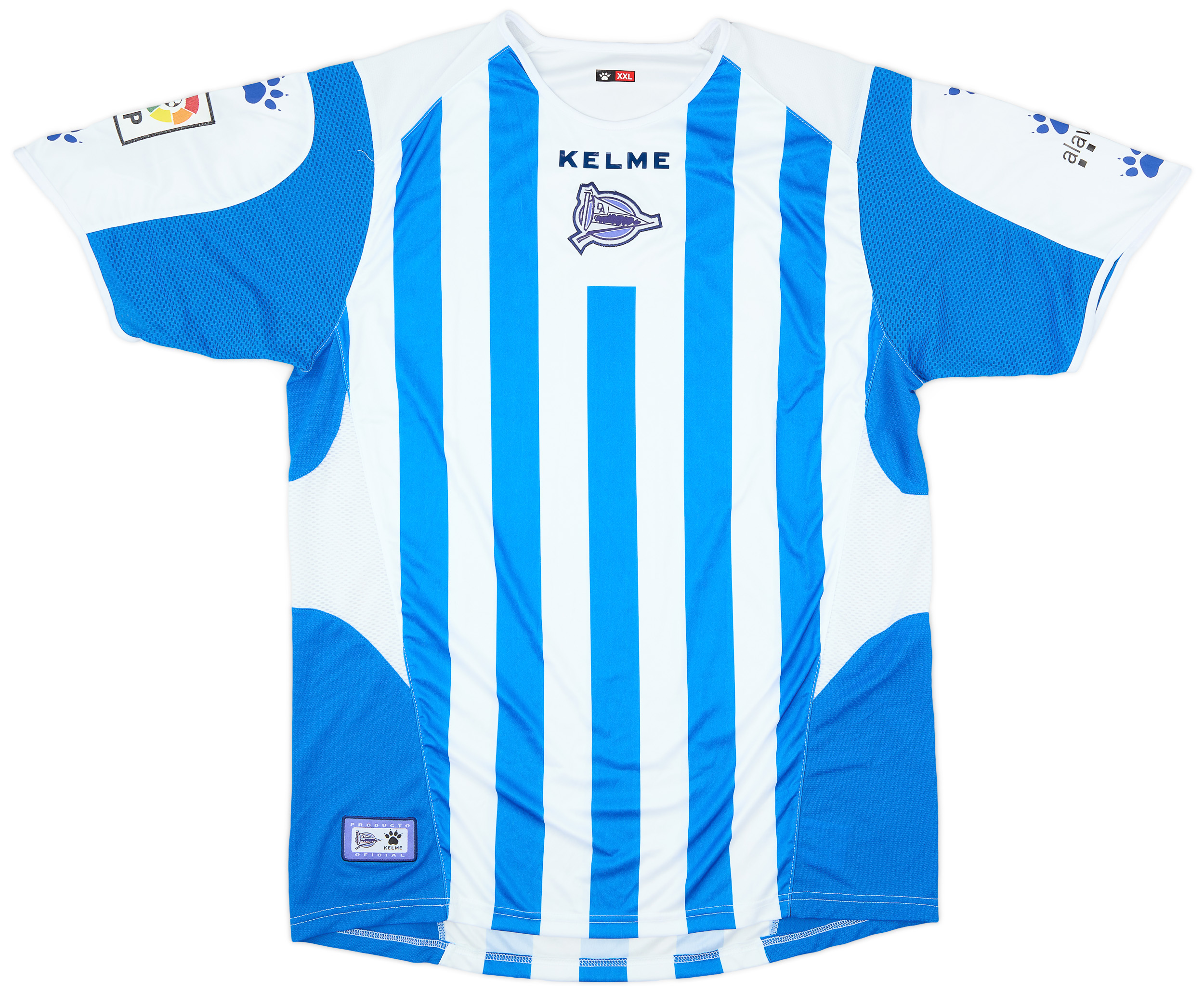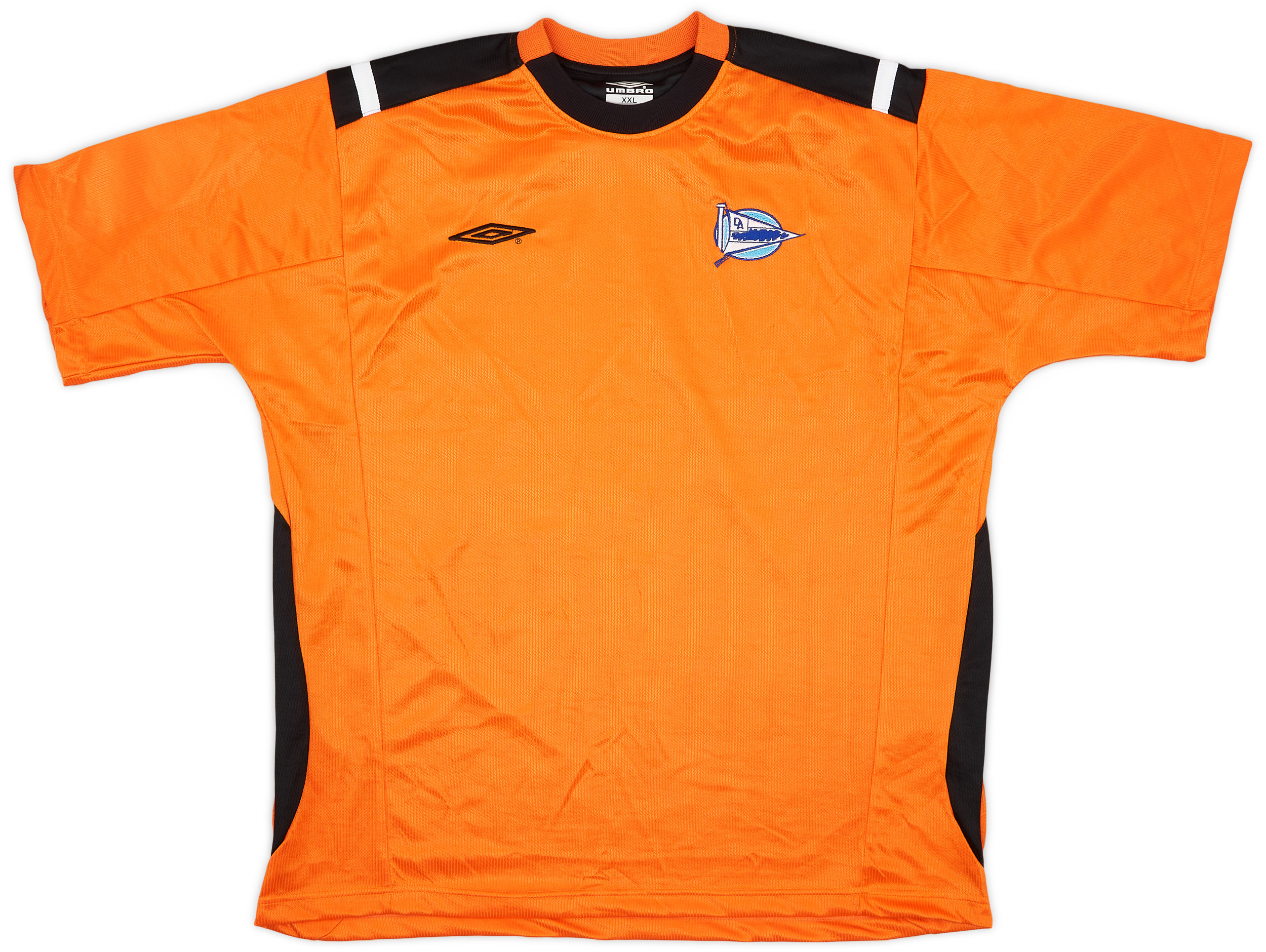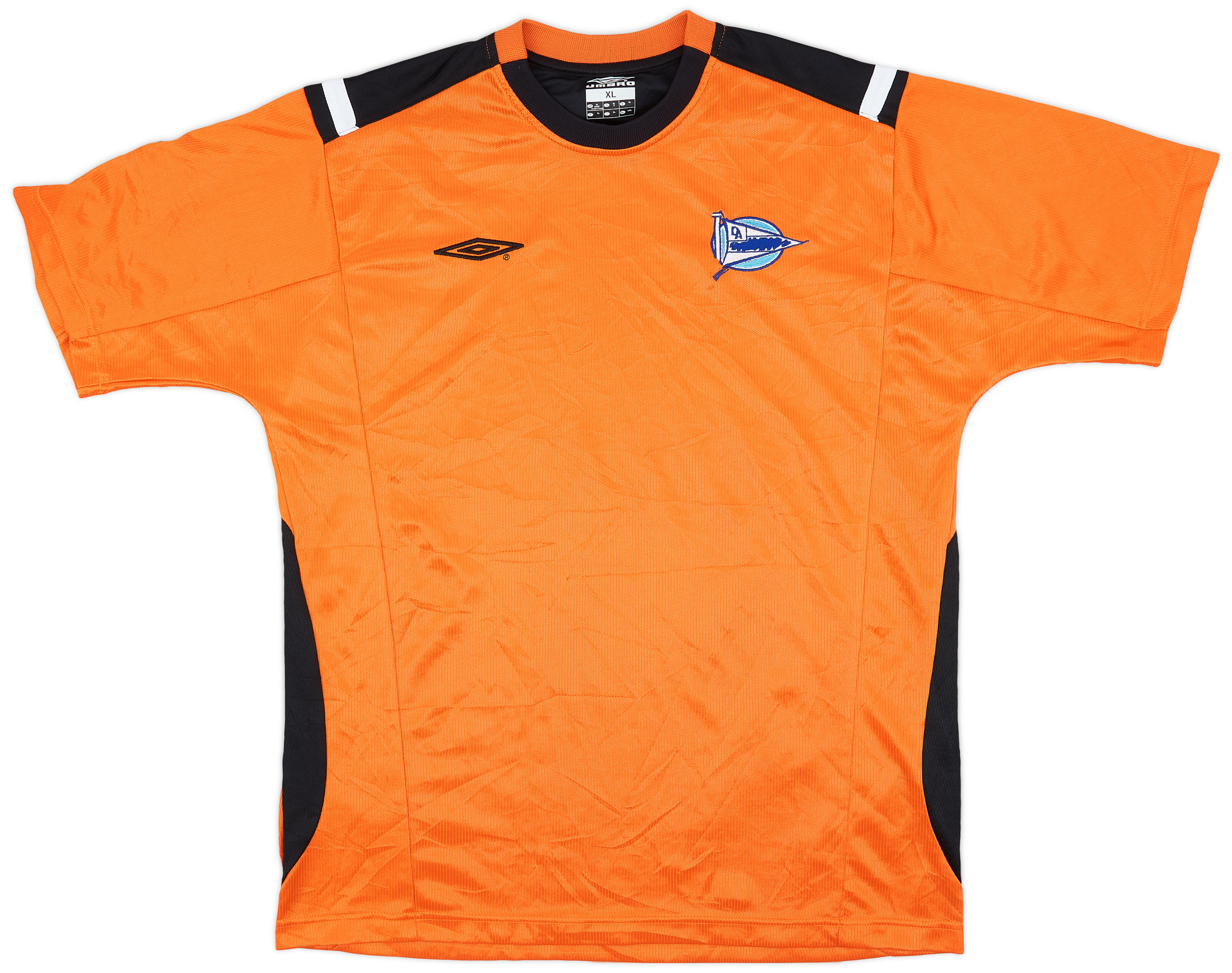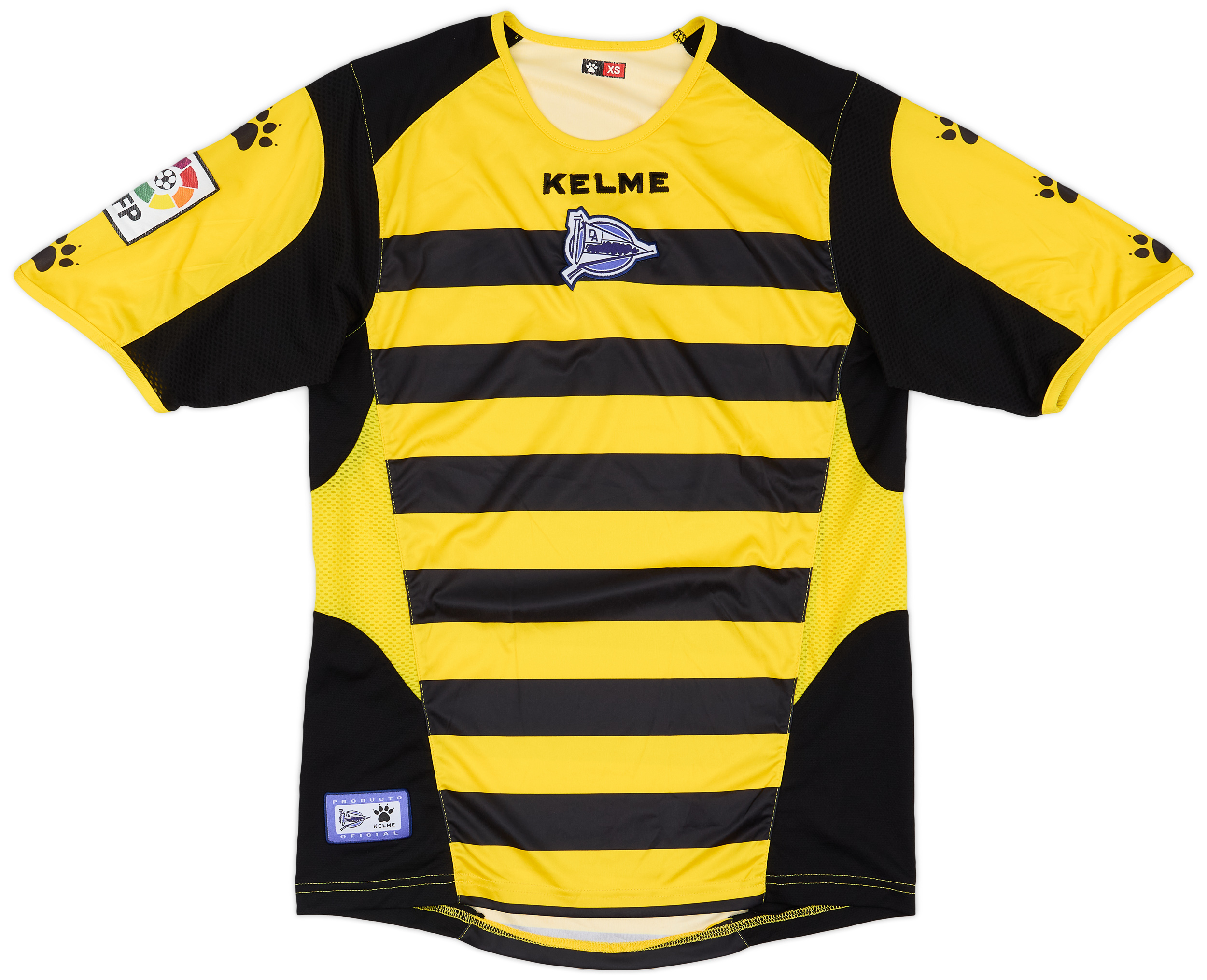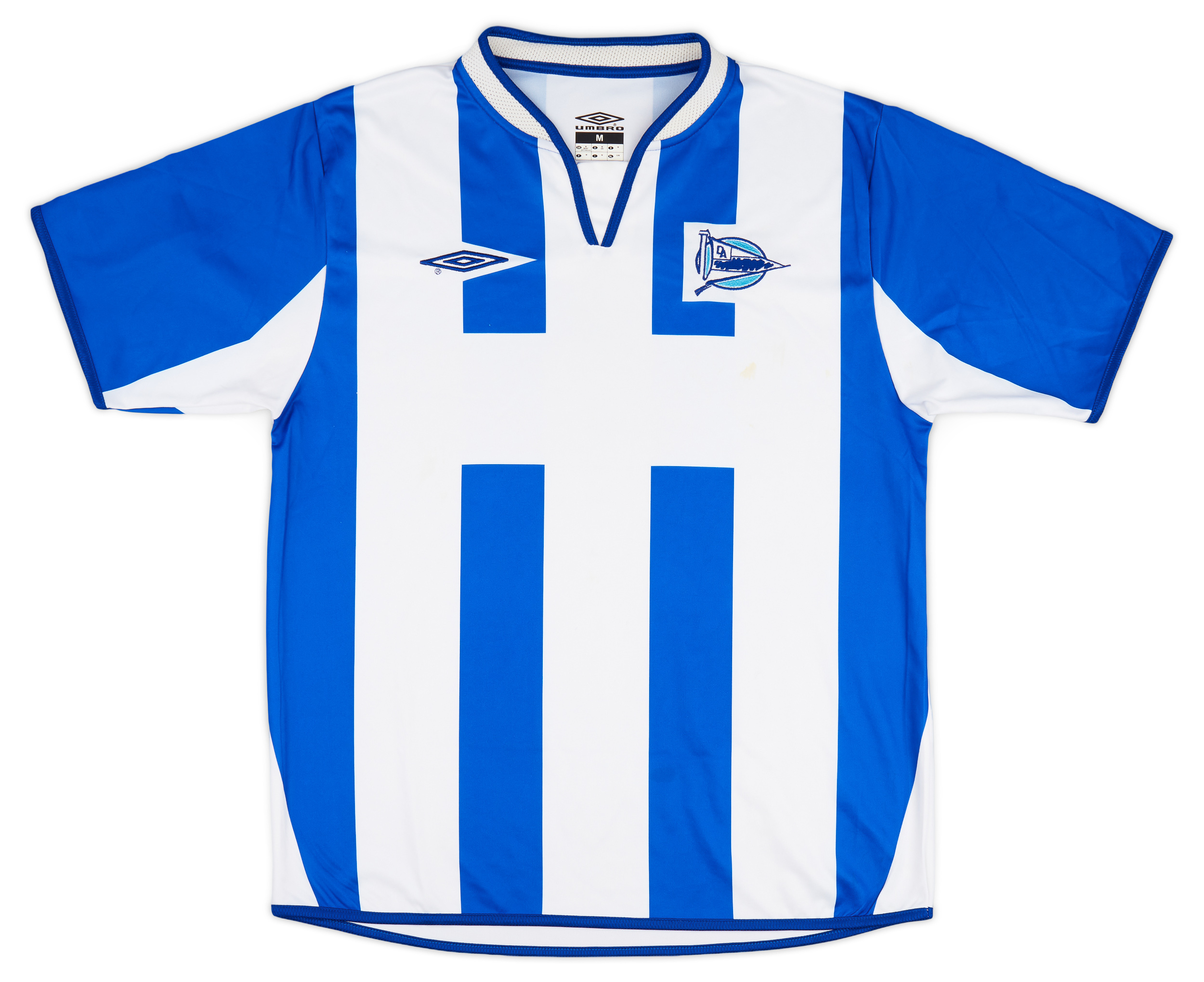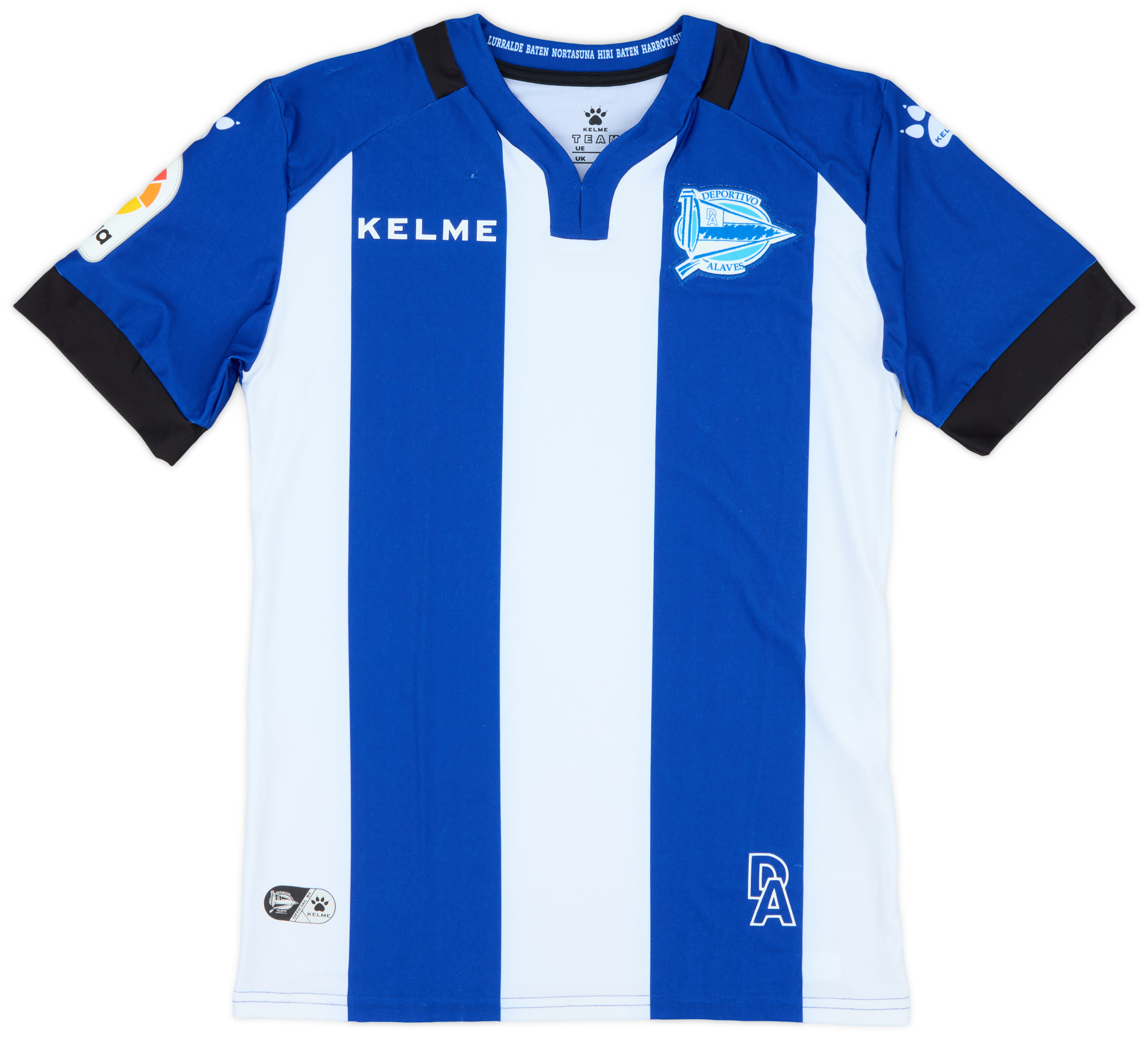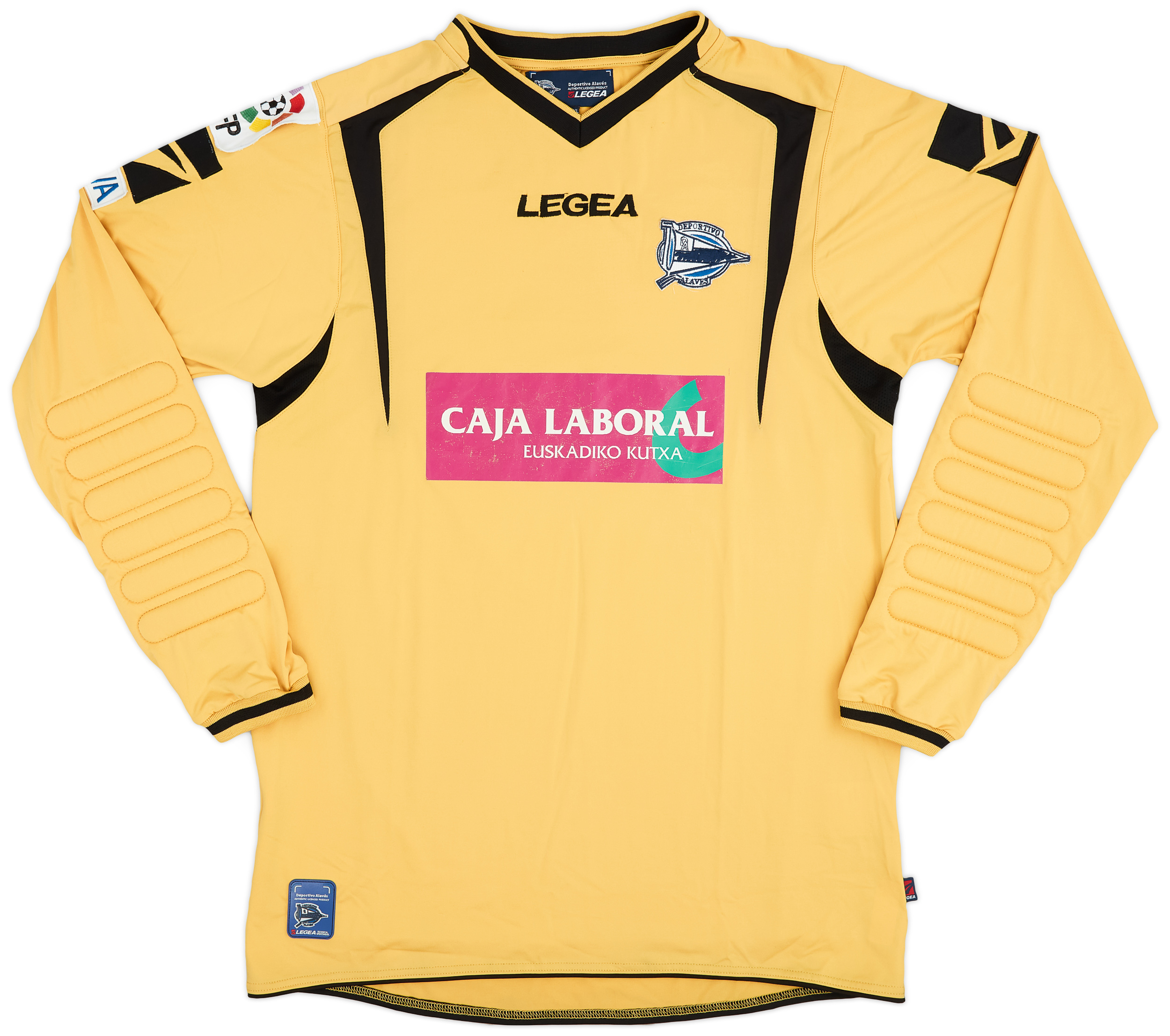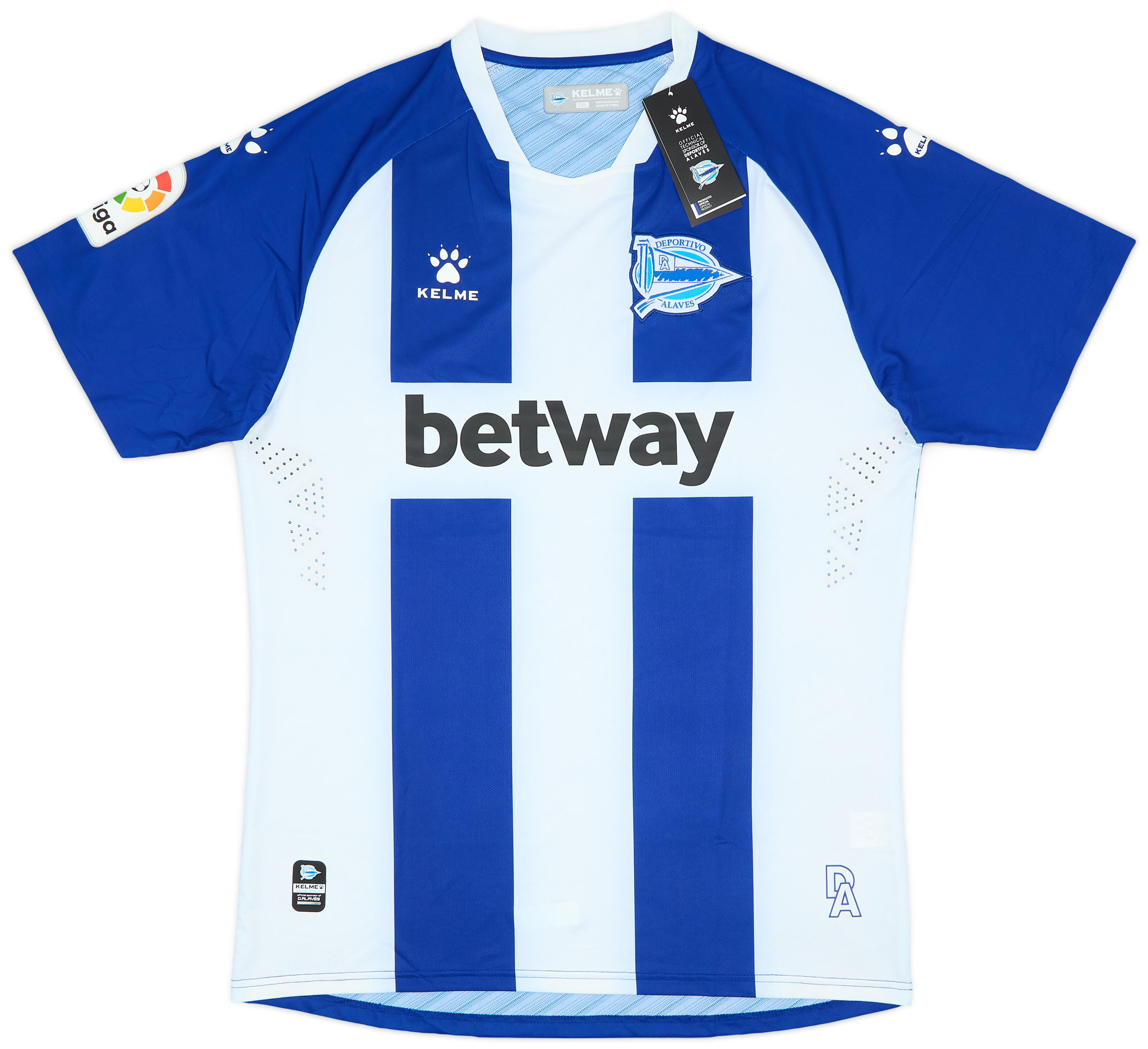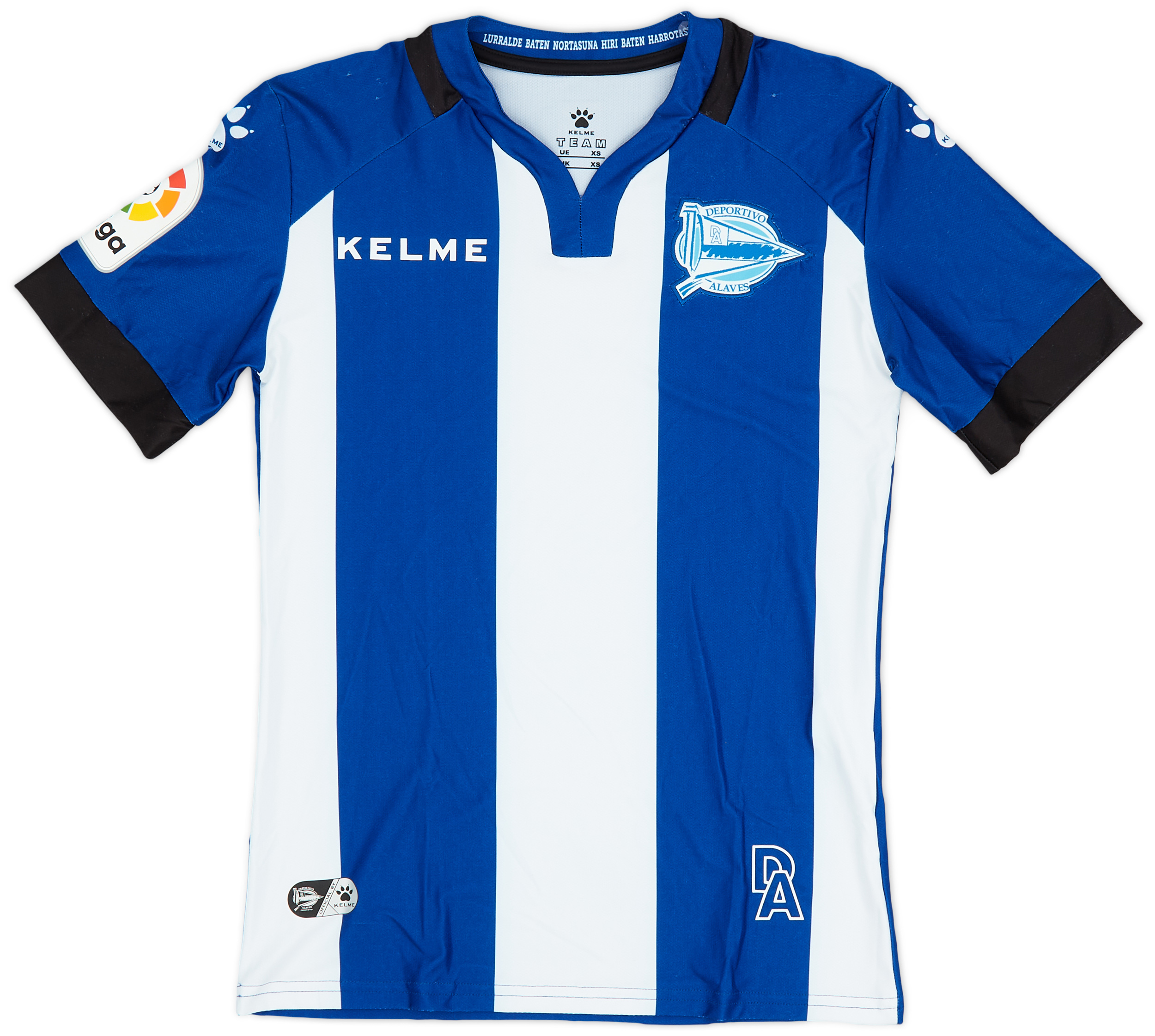Alaves
Introduction Deportivo Alavés, commonly known as Alavés, is a professional football club based in Vitoria-Gasteiz, the capital of Spain’s Basque Country. Founded in 1921, Alavés has made a name for itself through its tenacity on the pitch and strong ties to local culture. Often referred to by their fans as “Los Babazorros,” a nickname derived […]
2006-07 Alaves Home Shirt (XXL)
118.99£ - ca: €140
2002-03 Alaves Home Shirt - 7/10 - (XL)
106.99£ - ca: €126
2000-01 Deportivo Alaves Luanvi Track Jacket - 9/10 - (L)
106.99£ - ca: €126
2005-06 Alaves Home Shirt - 10/10 - (S)
94.99£ - ca: €112
2002-03 Alaves Away Shirt #10 - 8/10 - (XL)
94.99£ - ca: €112
2006-07 Alaves Home Shirt - 9/10 - (XXL)
82.99£ - ca: €98
2005-06 Alaves Away Shirt - 9/10 - (XXL)
70.99£ - ca: €84
2005-06 Alaves Away Shirt - 9/10 - (XL)
70.99£ - ca: €84
2006-07 Alaves Away Shirt - 8/10 - (XS)
70.99£ - ca: €84
2005-06 Alaves Home Shirt - 6/10 - (M)
70.99£ - ca: €84
2017-18 Alaves Home Shirt - 8/10 - (M)
70.99£ - ca: €84
2002-03 Alaves Squad Signed Home Shirt - 9/10 - (XL)
70.99£ - ca: €84
2008-10 Alaves GK Shirt - 6/10 - (XXL)
58.99£ - ca: €70
2020-21 Alaves Away Shirt (S)
58.99£ - ca: €70
2008-09 Alaves Home L/S Shirt XL
58.99£ - ca: €70
2019-20 Alaves Home Shirt (XXL)
58.99£ - ca: €70
2017-18 Alaves Home Shirt - 7/10 - (XS)
47.99£ - ca: €57
2019-20 Alaves Kelme Softshell Training Jacket - NEW
22.99£ - ca: €27
2019-20 Alaves Kelme Hooded Jacket - NEW
17.99£ - ca: €21
2019-20 Alaves Kelme Hooded Tee
17.99£ - ca: €21
2019-20 Alaves Kelme Presentation Pants/Bottoms - NEW
13.99£ - ca: €17
2019-20 Alaves Kelme Hooded Tee (XS)
6.99£ - ca: €8
Warning: A non-numeric value encountered in /var/www/netskribent.dk/retro-football-shirt.com/wp-content/themes/boot5/single-clubs.php on line 148
Introduction
Deportivo Alavés, commonly known as Alavés, is a professional football club based in Vitoria-Gasteiz, the capital of Spain’s Basque Country. Founded in 1921, Alavés has made a name for itself through its tenacity on the pitch and strong ties to local culture. Often referred to by their fans as “Los Babazorros,” a nickname derived from the club’s traditional brown and blue colors, Alavés stands out as a team with a rich heritage and an unwavering dedication to the city of Vitoria.
Club History
Deportivo Alavés was established in a time when Spanish football was finding its footing. The club played its first matches in the regional leagues and quickly progressed through the ranks. A significant turning point came in 1931 when Alavés joined the newly formed Segunda División, marking its entrance into competitive football. The club achieved its first major success in the 1950s when it won the Tercera División, propelling them into the Segunda, where they remained stable for much of the following decades.
However, the most noteworthy moments came in the late 1990s. Under the management of Mané, Alavés achieved promotion to La Liga in 1998 and solidified its status in Spain’s top division. This era was characterized by exhilarating football and a strong squad that captured the imagination of fans both locally and nationally.
Achievements
Alavés has had a rich but varied history of achievements. Among their significant accomplishments is a run to the Copa del Rey final in 2001, where they faced Liverpool at the UEFA Cup final, a match etched in the memories of every Alavés supporter. Although they ended as runners-up after a dramatic 5-4 defeat, the journey to the final showcased their resilience and flair. This performance earned them the title of “Cinderella team,” illustrating the unexpected feats smaller clubs can achieve against more established competitors.
Add to this the victory in the Copa del Rey in 1930, which was Alavés’s only major domestic trophy, demonstrated their historical prominence in Spanish football during the early 20th century. Another significant moment for the club came when they secured a solid mid-table finish in La Liga during the early 2000s, establishing themselves among Spain’s elite for several seasons.
Significant Players and Matches
Throughout its history, Alavés has been home to numerous significant players who have left a profound impact on the club. Among them was an iconic figure, Iván Alonso, a prolific striker who had a key role in the club’s successes during the early 2000s. His ability to find the net and his strong performances made him a fan favorite and an integral part of Alavés’s attacking play.
Another notable player was the talented midfielder, Thomas Partey, who began his football journey with Alavés while on loan from Atlético Madrid. His time at the club was crucial for his development before moving on to become a household name in Europe. Matches against local Basque rivals, such as Athletic Bilbao and Real Sociedad, have often seen Alavés rise to the occasion, showcasing the fierce competitive spirit embedded within Basque football.
Cultural Impact
Deportivo Alavés holds a special place in the heart of Vitoria-Gasteiz and the surrounding Basque region. The club represents a source of pride, seen not only as a team but as a unifying force for the community. The fervor of the fans is palpable during matchdays at Estadio Mendizorrotza, where the atmosphere is electric and steeped in tradition. Fans contribute significantly by supporting grassroots initiatives and ensuring that the club’s identity is preserved through generations.
The Basque region is known for its rich cultural heritage, and Alavés embodies that spirit. The club frequently collaborates with local charities and initiatives, making them not just a football club but a vital part of the community. This commitment fosters a sense of belonging and identity among the supporters.
Conclusion
Deportivo Alavés may not have the storied history of some of Spain’s giants, but its significance in football history cannot be overstated. The club’s perseverance, dedication to local culture, and remarkable journeys through Spanish football resonate with fans both in Vitoria-Gasteiz and beyond. From its humble beginnings to its successful campaigns, Alavés remains a testament to the magic of football, demonstrating that passion and community spirit can transcend the game itself. As they continue to strive for success, Alavés symbolizes hope and ambition—qualities that are cherished in football and life alike.
